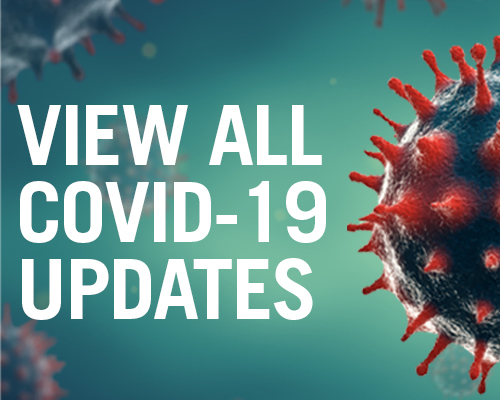Survey: Interventional Fellows Fear Missing Competency Goals Due to COVID-19
About one-third of polled program directors and current fellows said training should somehow be extended.

Typically in a 1-year program, the last few months of interventional cardiology fellowship are dedicated to strengthening decision-making skills and gaining independence in the cath lab, according to senior author Susheel Kodali, MD (NewYork-Presbyterian/Columbia University Irving Medical Center, NY). When hospitals began to shut down elective procedures, essentially pausing the bulk of cath lab procedures, fellows and those who train them foresaw the widespread effect on education.

“Most of the programs in New York are high-volume programs, so in terms of getting technical skills, the majority of the programs are still going to meet the minimum requirements or are well over the minimum requirements,” Kodali told TCTMD. “I think looking at this broadly across the country, there are a lot of places that weren't hit as hard with the pandemic but the hospitals shut down [and] they stopped doing elective cases. Now, they're going to restart, but they still lost 2-3 months of training, and at some of these lower-volume programs . . . it may have more of an impact.”
Difficulty Meeting Procedural Requirements, Competency
Kodali along with Tanush Gupta, MD (NewYork-Presbyterian /Columbia University Irving Medical Center), and colleagues sent out a survey to 21 interventional cardiology programs accredited by the Accreditation Council for Graduate Medical Education (ACGME) in and around New York City and northern New Jersey. In total, 14 program directors and 25 fellows responded.
The results, published online last week ahead of print in Catheterization and Cardiovascular Interventions, show an marked effect. Half of program directors said their fellows had been deployed to other clinical areas since the start of the pandemic, and 21% said they expected their fellows to finish the year below the ACGME-mandated threshold of 250 PCIs on average. Because of this, 57% of program directors reported feeling that their fellows’ number of coronary physiology or intravascular imaging procedures should be included in their PCI procedure log.
More than half of program directors (57%) said the pandemic would have at least a moderate adverse impact on interventional training, while 14% said it would be severe. Also, 14% of program directors said they would likely deal with at least one of their trainees failing to achieve required technical competence by the end of June, and 29% said training should either be extended or trainees should be offered additional on-the-job training.
Of the fellows who responded, 24% said they had performed fewer than 250 PCIs as of March 1, including 12% who said they were below 200. Almost three-quarters (72%) said they expected the pandemic to have a moderate adverse impact on their training, while 24% said it would be severe. Only about half of the fellows said they expected to achieve technical competence in interventional cardiology by the end of June.
More than one-quarter (28%) of respondents said they plan to complete an additional year of training starting this July; one of the fellows who planned to start working said a prospective employer withdrew a job offer. One-third of fellows said that their fellowship should be extended in some way or would like to be offered a dedicated period of ongoing mentorship.
Among the nine advanced fellows who responded to the survey, 78% said they had already secured a job and 33% and 45%, respectively, said they expected the pandemic to have a mild or moderate impact on their training. More than two-thirds (67%) said they were very confident in being able to achieve technical competence by the end of their program year, and 89% said there was no need for a fellowship extension or additional mentorship.
“This survey highlights the adverse impact of the COVID-19 pandemic on interventional cardiology fellowship training from the perspective of both fellows and training directors,” the authors write. “Our data should inform training programs, accreditation bodies, and professional societies to offer tailored opportunities for remediation of affected trainees after fellowship.”
Be Honest About Competency
Kodali said “there's no right answer” because every fellow and program is different. “We all have trainees that 6 months into a training program are probably as far as they can get in that training program because they are really good,” he said. “There are others that require the full year, and that's some of the challenge.”
His institution has announced that it will allow for extensions of 3-4 months in order for trainees to meet requirements or proficiency if needed. However, Kodali questioned both the ability of fellows to catch up in that time frame as well the effect of extensions on the incoming class of fellows.
For graduating trainees planning on transferring to a group practice, the better option might be for them to mature on the job, he said. “The jobs taking these fellows may have to adapt a little bit differently to some of these things.”
The incoming class of fellows across the country will have a “slow start,” Kodali added. “We expect to be at hopefully 50% volume through the end of the summer, so there's going to be less volume for them. . . . We don't know what the environment is going to be for the next year. But in some ways if there is a second surge, they may be more impacted than the current class, because for our current class at least through February they got the full-on training. This new class is going to start with a lot of uncertainty and lower volumes, potentially, and uncertainty about a second surge.”
Simulation may play a greater role in interventional cardiology training than it has previously, he guessed. However, “you need to be able to handle stress in certain situations when things aren't going well and getting into trouble and getting out of trouble. I think there are ways to simulate that, . . . but it's not the same.”
Kodali advised current fellows to be honest with themselves and their future employers about their competency and not be afraid to ask for help. “People clearly acknowledge that it's going to impact them,” he said. “There's lots of other resources that will hopefully be available through [the Society for Cardiovascular Angiography and Interventions] and other organizations, but I think immediately if they feel uncomfortable, [they should explore] ways to consider extending training and making sure they get a good experience.”
Yael L. Maxwell is Senior Medical Journalist for TCTMD and Section Editor of TCTMD's Fellows Forum. She served as the inaugural…
Read Full BioSources
Gupta T, Nazif TM, Vahl TP, et al. Impact of the COVID-19 pandemic on interventional cardiology fellowship training in the New York metropolitan area: a perspective from the United States epicenter. Catheter Cardiovasc Interv. 2020;Epub ahead of print.
Disclosures
- Gupta and Kodali report no relevant conflicts of interest.


Comments